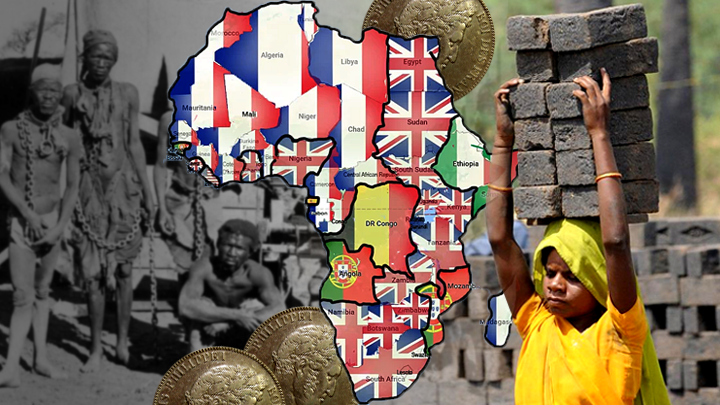Business in Africa can be very rewarding. Business as the engine of the economy is the creation and sale of goods and services to consumers and other businesses. Businesses provide jobs, generate tax revenue, and drive innovation.
There are many different types of businesses, from small businesses with just a few employees to large corporations with millions of employees. Businesses can be classified by their industry, size, and ownership structure.
Industry refers to the type of goods or services that a business produces. Some common industries include retail, manufacturing, healthcare, and finance.
Size refers to the number of employees that a business has. Small businesses are typically defined as having fewer than 500 employees, while large businesses are typically defined as having more than 500 employees.
Ownership structure refers to how a business is owned and controlled. Some common ownership structures include sole proprietorships, partnerships, corporations, and limited liability companies (LLCs).

Why is business important?
Business is important for several reasons:
First, businesses provide jobs. In most countries, businesses are the largest source of employment.
Second, businesses generate tax revenue. Taxes are used to fund government programs such as education, healthcare, and infrastructure.
Third, businesses drive innovation. Businesses are constantly developing new products and services, which help to improve the quality of life for consumers and people in general.
How to start a business
If you are interested in starting a business, there are a few things you need to do. First, you need to come up with a business idea. What kind of goods or services do you want to sell? Who is your target market? Once you have a business idea, you need to develop a business plan. This document will outline your business goals, strategies, and financial projections.
Once you have a business plan, you need to obtain the necessary permits and licenses. You will also need to choose a business structure and register your business with the government.
Once you have registered your business, you need to start marketing your products or services. This can be done through a variety of channels, such as advertising, public relations, and social media.
Challenges of running a business
Running a business is not easy. There are many challenges that businesses face, such as competition, economic downturns, government regulation, and most commonly, the difficulty in startups. Regardless of these, the rewards of running a successful business can be great if you remain consistent and resilient.
Business can be a challenging but rewarding endeavour. If you are thinking about starting a business, do your research and be prepared to work hard. With the right business idea, hard work and perseverance, you can achieve your business goals and make a positive impact on the economy.
Running a business in Africa
Africa, often referred to as the “final frontier” for business, is a continent brimming with untapped potential. In recent years, several African countries have been making significant strides in economic development, governance, and infrastructure. This progress has created a conducive environment for businesses to thrive and prosper.

We will explore some of the most successful African countries to do business in, highlighting their remarkable achievements and the opportunities they present for both local and international investors.
1. Mauritius
Mauritius has consistently ranked as one of the top destinations for business in Africa. This small island nation boasts political stability, a well-developed financial sector, and a favourable tax regime. It serves as a regional hub for finance and investment, making it an attractive destination for multinational corporations.
The ease of doing business, strong rule of law, and robust infrastructure contribute to Mauritius’s success as a business-friendly nation.
2. Rwanda
Rwanda has undergone a remarkable transformation over the past two decades, emerging as a beacon of hope for business in East Africa. The government’s commitment to reducing bureaucracy, corruption, and red tape has resulted in Rwanda being one of the easiest places to start and operate a business. The country’s investment in technology and innovation has created opportunities in sectors such as tech, agriculture, and tourism.
3. South Africa
As one of the continent’s most industrialized nations, South Africa has a diversified economy that offers a wide range of opportunities for investors. Its well-developed infrastructure, financial services sector, and access to regional markets make it an ideal destination for businesses looking to expand in Africa.
While the country faces challenges like unemployment and income inequality, its business environment remains robust.
4. Nigeria
Nigeria, Africa’s most populous nation, presents both challenges and rewarding opportunities. With a rapidly growing consumer market, abundant natural resources, and a burgeoning tech scene, Nigeria is a top choice for investors seeking high returns.

However, navigating its regulatory landscape infrastructure deficits, and economy can be demanding, making local partnerships and market research important for success.
5. Kenya
Kenya is often referred to as the “Silicon Savannah” due to its thriving tech ecosystem. The country’s innovative spirit, coupled with its strategic location as East Africa’s economic hub, has attracted numerous tech startups and investors.
Furthermore, Kenya’s progress in sectors like agriculture, finance, and renewable energy offers promising investment prospects.
6. Ghana
Ghana, known as the “Gateway to West Africa,” has made significant strides in recent years, improving its business environment and attracting foreign investment.

The country’s political stability, infrastructure development, and abundant natural resources make it a lucrative destination for various industries, including mining, agriculture, and energy.
7. Ethiopia
Ethiopia has witnessed impressive economic growth, driven by government-led initiatives to industrialize the country. The government’s emphasis on infrastructure development, such as the Addis Ababa-Djibouti Railway, has enhanced connectivity and created opportunities for logistics and trade. Ethiopia’s large and youthful population presents a vast consumer market.
8. Botswana
Botswana is celebrated for its political stability and good governance, factors that have contributed to its attractiveness for business. The country’s mining industry, especially diamond production, is a major driver of its economy.
Adding to it is that Botswana’s well-developed financial services sector and commitment to diversification make it an appealing destination for investors.
Africa as a continent is undergoing a transformation that offers unprecedented opportunities for businesses. The aforementioned countries represent just a fraction of the continent’s potential, as several other nations, including Côte d’Ivoire, Senegal, and Uganda, also present promising prospects.
No matter the success of these nations, it is still very important to note that challenges such as political instability, corruption, the possibility of an unstable economy, and infrastructure deficits persist in some regions and could harm businesses.
To succeed in these markets, businesses must conduct thorough research, establish local partnerships, and adapt to the unique characteristics of each country.

Despite the challenges, the rewards of doing business in Africa are substantial, as the continent continues on its path toward economic growth and development.
As investors and entrepreneurs increasingly recognize the potential, Africa is poised to become a global business powerhouse in the years to come.
You should keep this in mind if you must run a successful business:
- Focus on your customers; What do your customers want and need? How can you exceed their expectations?
- Build a strong team; Hire the right people and give them the support they need to succeed.
- Be innovative; Constantly look for new ways to improve your products or services.
- Be adaptable; The business world is constantly changing, so be prepared to adapt your strategies accordingly.
- Don’t be afraid to fail; Failure is a part of the learning process. Don’t give up on your dreams. Be persistent.









































































